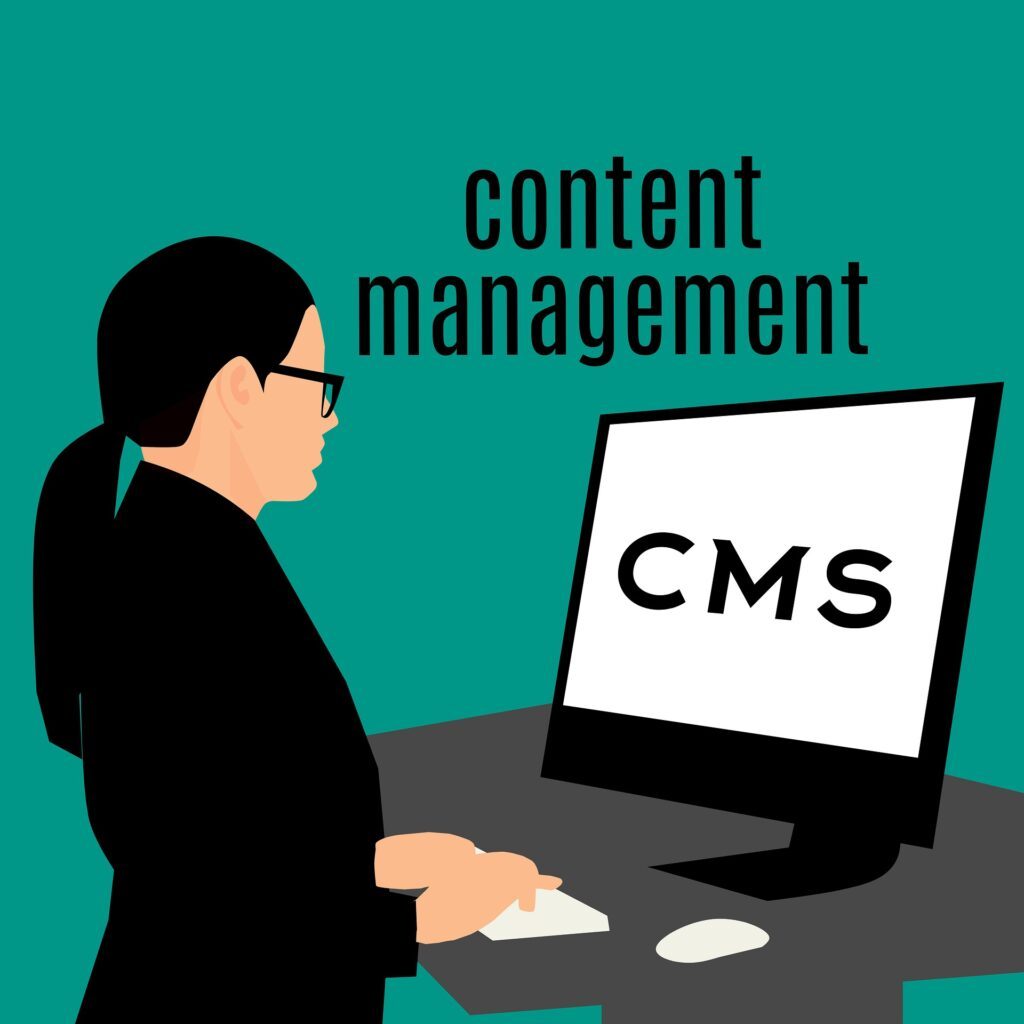Digital marketing has changed the perception of how businesses are managed and how they can achieve their content goals. To build brand recognition along with an online presence, digital marketers are focusing on content management now more than ever. In this article you will read about the Top 10 Content Management Systems Used by Leading Companies in the US.
Many are turning to content management systems (CMS) for assistance. It helps create and manage content for companies on a website, including the design, graphics or even code.
It is common for business owners to use a variety of different techniques to achieve different business and marketing goals. They still need to choose the best content management system (CMS) simple solution, that is easy to use and meets all digital marketing and therefore content needs. Businesses require a reliable system to maximize their potential and create content, that provides real customer value.
The easy accessibility of the online world has triggered a digital revolution.
More and more marketers in the U.S. have been forced to improve their digital marketing capabilities to stay competitive in the virtual space.
Companies and online companies have been able to expand their reach and increase sales by implementing strategies that target potential audiences and convert them into loyal customers.
Company owners are investigating options for managing every aspect of their digital marketing footprint. Here are the best content management systems, in no particular order, that you should investigate.
Top 10 Content Management Systems (CMS) Used by Leading Digital Marketing Companies in the U.S.
1️⃣. WordPress
It’s the CMS that everyone has heard of. WordPress was launched in 2003 and has since gained notoriety. One of its greatest features is a low-cost business plan. Based on PHP and MySQL, it offers numerous tools that allow you to create content, videos, images, etc. for your website or blog. Content management systems are great choice for doing content marketing for companies.
Although it offers a large selection of ready-made themes, WordPress lets you install third-party themes to personalize your site. The biggest advantage is its intuitive interface, which makes it much easier to use.
The software can be downloaded for free from WordPress.org. Once it is installed on the server, you can customize every aspect of your website. With 98% user satisfaction, it is among the most popular CRMs.
While online company owners can start for free, they can upgrade their plan at any time to access more features.
2️⃣. Hubspot
HubSpot CRM is available free, but sales or marketing modules can be added for an additional cost. The HubSpot website platform fully integrates your content with the HubSpot marketing platform.
This is an ideal solution for those considering redesigning their website. So, while it helps create attractive content, business owners can use other aspects of this platform to target a suitable audience and sell almost three times faster than their competitors.
Although it offers various features at individual costs, users can easily manage interface options while providing a secure, mobile-optimized platform. It ensures that your website has reliable uptime, is search-optimized, and has excellent performance.
3️⃣. Drupal
Drupal is a CMS and much more. It is an open-source platform that supports many apps and websites.
One of its best features is that it offers an integrated modular system that can be used for multiple functions such as publishing, communication, and e-commerce. It offers many modules, themes, ads, and plugins.
Drupal is customizable, so users can create any website, social networking page or blog. It promotes the creation and management of texts, surveys, videos, images, statistics, etc.
More importantly, businesses prefer Drupal because of its scalability, reliability, versatility, manageability, security, and availability of resources.
4️⃣. Joomla!
Like WordPress, it is a free open-source CMS. Joomla is used by over 75 million websites and is easy to use, even for those who are not tech-savvy.
As a CMS, it manages all the content you want, including text, images, music, videos, etc. It offers thousands of extensions and themes that let you customize all the features of your website. All it takes is a single click.
Joomla has strengthened websites all over the world. Regarding complexity, this CMS is between the simple WordPress and the more advanced Drupal.
But with its collection of development tools alongside tutorials, you’ll be up and running in no time. Joomla is especially popular for forums, news sites, and other content sites.
With the goal of providing CMS for most businesses, some technical users may find it too simple to meet their needs.
5️⃣. Kentico
This all-in-one platform is the choice of Starbucks, Mazda, and Gibson guitars. Kentico prides itself on being the only CMS platform that is fully integrated with ASP.NET.
Business owners can not only build and manage their website, but also control key online marketing solutions such as e-commerce campaigns and create content online. It also offers unique features for building communities, such as message boards, forums, and groups.
Kentico is simple and easy to use, allowing developers and content editors to update and edit effortlessly. It offers 50% more ready-to-use solutions than other systems on the market.
It offers four annual subscription packages, each with different features to suit your needs.

6️⃣. Oracle WebCenter Content
This enterprise content management system is somewhat expensive, as business owners are expected to pay nearly $7,600 per year for a minimum of 10 users.
That’s the price for highly effective, all-in-one content management systems. This robust platform includes end-to-end content management from content creation to archiving.
Oracle WebCenter Content helps maintain accurate and consistent content, with special attention to branding and presentation to ensure high productivity.
It supports its customers by maintaining the quality of the CMS. Its strategic infrastructure is perfect for managing content, documents, rich media files, images, and records.
7️⃣. Squarespace
Another popular CMS platform that came out around the time WordPress hit the market is Squarespace.
Like WordPress, it allows users to develop a website and install different themes. Content such as text, images, and videos can be easily managed. However, it is not open source.
Tools include the ability to add logos or change templates, fonts and colors with the software’s style editor. Integration with Aviary allows for online image editing.
It also allows users to search for Getty Images, preview and purchase licenses discounted. And as a blogging platform, Squarespace helps add content, save posts, publish them later, set them up with iTunes podcasting, etc.
It offers three plans from $18 to $40 per month with SSL security, Zapier and Google Ads credit.
8️⃣. Magnolia
This Java-based CMS is for companies that need a website that can do just about anything. Besides being able to write, edit, view, and publish content, Magnolia is an all-inclusive platform.
It offers CRM, ERP, e-commerce, business analytics, marketing automation and social media. While your business may not need them initially, you can easily add these features as the business expands.
Most importantly, the public and private elements of a website are separated to increase security. Pricing can be adjusted to fit an online company’s needs and budget.
9️⃣. SharePoint
Microsoft’s SharePoint is used by nearly 75% of Fortune 500 companies, GE, Amazon, and Cisco, to name a few.
SharePoint’s strength lies in the fact that it reduces costs and improves collaboration by combining CMS with business intelligence, workflow management, cloud capabilities, enterprise social networking, etc.
Access from anywhere and the ability to communicate with employees from other departments facilitates success. Customization allows you to edit components and create custom apps that fit your brand.
🔟. Bynder
As one of the best content management systems, it helps to create, find, use, and edit content efficiently. It promotes cross-team collaboration and facilitates high-quality workflow.
It allows editors, managers, and marketers to create, share, approve, and distribute content to match and have consistency with your brand.
Although Bynder is more expensive (starting at $450/month) than other CMSs, it offers features that help simplify mundane and time-consuming tasks.
Choose now the very best of the top ten content management systems, namely WordPress. Subscribe to Wealthy Affiliate and get 10 free WordPress websites including free technical support.

